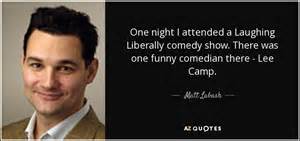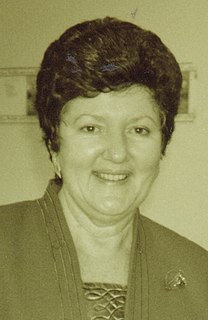A Quote by Susan Sontag
The way in which a certain kind of political idealism has been discredited and scorned makes the danger not that intellectuals keep on making fools of themselves, formulating political opinions when they might not be as informed as they might be, but that they retreat and leave politics to the professionals.
Related Quotes
I've been offered political shows before, and I don't know anything about politics and I feel uncomfortable making political opinions - there's consequences to them. I often think I'm wrong, so I really don't like getting in political or religious discussions because of the giant possibility that I might be wrong.
The basic problem is not political, it is apolitical and human. One of the most important things to do is to keep cutting deliberately through political lines and barriers and emphasizing the fact that these are largely fabrications and that there is another dimension, a genuine reality, totally opposed to the fictions of politics: the human dimension which politics pretend to arrogate entirely to themselves. This is the necessary first step along the long way toward the perhaps impossible task of purifying, humanizing and somehow illuminating politics themselves.
For me, what is political is very personal. Politics are not this abstract idea. Laws are the rules that dictate how we live our lives. What we eat is political. How we dress is political. Where we live is political. All of these things are influenced by political decision-making, and it's important to be part of the process.
Empathy is a human trait. But lots of humans exercise some traits more energetically than others. By "the usefulness of empathy" I mean the way in which a progressive might claim that empathy is a crucial aspect of any benign political system, and the way a conservative might argue that not only is it not necessary, but it might not even be all that helpful, in that regard.
Even in the things that look most frivolous there has to be the threat of something quite painful to make the comedy work. I suppose the play of mine that's best know is NOISES OFF, which everyone thinks is a simple farce about actors making fools of themselves. But I think it makes people laugh because everyone is terrified inside themselves of having some kind of breakdown, of being unable to go on. When people laugh at that play, they're laughing at a surrogate version of the disaster which might occur to them.
Using the word ‘political’ in the widest possible sense. Desire to push the world in a certain direction, to alter other peoples’ idea of the kind of society that they should strive after. Once again, no book is genuinely free from political bias. The opinion that art should have nothing to do with politics is itself a political attitude.
Elites are inevitable in politics. That is how politics is going to work. The question is, are your elites responsible, public-spirited? Do they think about the interests of others, not just themselves? And the story of Western politics since the beginning of the century is that as elites become more separated, more selfish, as they leave behind their populations and don't think about them, they become discredited. And the people look for alternatives. But the alternative is worse. Those rules of the game protect us all. And they are more precious than almost any political outcome.
It started becoming clear to me how one might have views about the nature of mind and of knowledge which are empirically informed. This way of thinking about philosophical theorizing makes sense of how philosophy might be a legitimate intellectual activity, in a way that a good deal of the armchair philosophy, I believe, cannot.
The slow-rising central horror of "Watergate" is not that it might grind down to the reluctant impeachment of a vengeful thug of a president whose entire political career has been a monument to the same kind of cheap shots and treachery he finally got nailed for, but that we might somehow fail to learn something from it.
I think I've yet to do the big heave is because New York editors tend to think D.C. guys like me want to do political stories. And I hate politics for its own sake. Politics are so... I don't know, political. Which is an odd thing for a guy to say, I suppose, who has worked at a political magazine for fourteen years.
The other side of my work is political disappointment - the realization that we are living in an unjust world. "Blood is being spilled in the merriest way, as if it was champagne," Dostoevsky says. That raises the problem of justice, what it might mean in an unjust world and whether there can be an ethics and a political practice that would be able to face and face down the injustice of the present. How might we begin to think about that?
There is no such thing as being non-political. Just by making a decision to stay out of politics you are making the decision to allow others to shape politics and exert power over you. And if you are alienated from the current political system, then just by staying out of it you do nothing to change it, you simply entrench it.



































